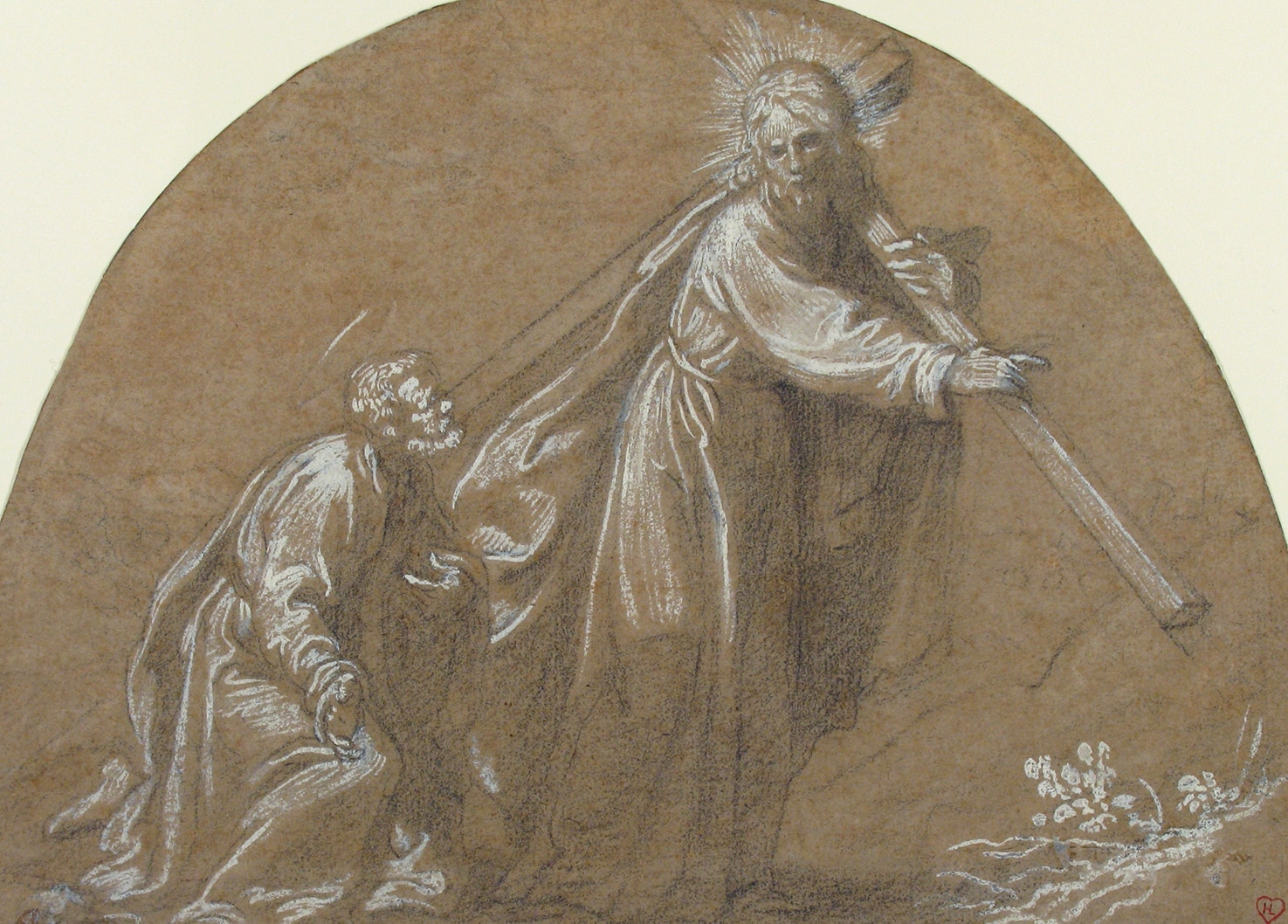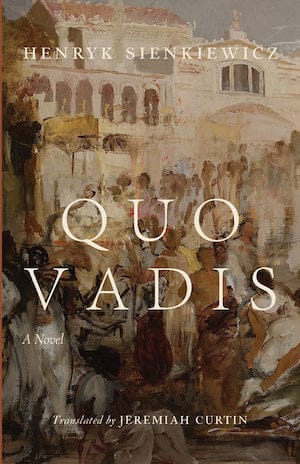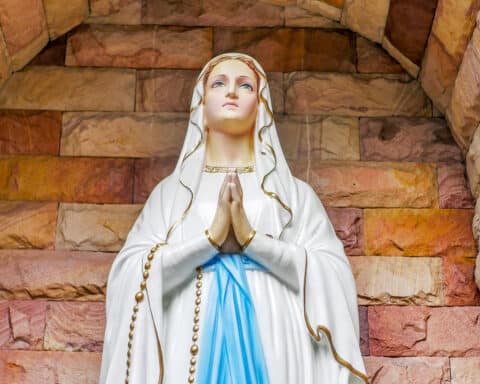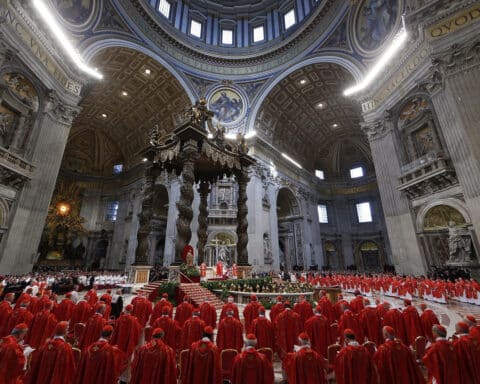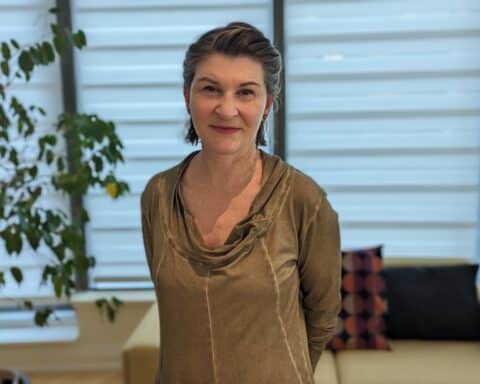“Before I knew you, I should have taken her undoubtedly and held her by force; but your virtue and your religion, though I do not profess it, have changed something in my soul, so that I do not venture on violence,” the Roman patrician Marcus Vinicius tells the apostles Sts. Peter and Paul in the epic novel “Quo Vadis” (Cluny Media, $22.95). When we first meet Vinicius in the novel, he is consumed by earthly desires. His love for Lygia, a devout Christian, is fueled by possessiveness rather than respect. He embodies the worldly temptations that can easily distract us from our connection to God. But then, slowly, something changes in Vinicius. And the resulting transformation is a model for us this Lent.
Like Vinicius stumbling upon the early Christians nestled in catacombs, our own conversions often begin with a small flicker. Perhaps it’s a gentle nudge from the Holy Spirit, a chance encounter with a humbling truth or simply the quiet yearning for something more.
For Vinicius, it was witnessing the serene strength of Christians facing persecution.
When he first sets eyes on Peter, Vinicius describes the apostle as a “witness, simple, aged, and immensely venerable, who had journeyed from afar to relate a simple truth which he had seen, which he had touched, which be believed as he believed in existence, and he had come to love this truth precisely because he believed it.” In our own lives, this spark might ignite through seeing this kind of witness. It might also come in prayer, through a moving homily or even as a whispered realization during a moment of solitude. Whatever the catalyst, Lent encourages us to nurture that spark, to fan it into flame.
Choosing God
Vinicius’s path to conversion is far from smooth. “He thought that because of its madness it was impracticable but because of its impracticability, it was divine.” He grapples with internal conflict, torn between his worldly desires and the nascent pull towards faith. The chasm between his Roman identity and the teachings of Christianity yawns wide, mirroring the internal struggles we often face ourselves. Habits and attachments, like Vinicius’s pride and lust for power, can become formidable obstacles.
Lent challenges us to acknowledge these chasms within ourselves. We must identify the habits, thoughts and desires that distance us from God and actively seek to bridge the gap.
Vinicius’s journey takes a decisive turn when he chooses Lygia over his former self. He embraces baptism not out of coercion but from a genuine desire for a new life in Christ. This pivotal moment reflects the core message of Lent — the power of choosing God, of surrendering to a change that works a mighty interior transformation. “When they found a God whom they could love, they had found that which the society of the time could not give any one — happiness and love.”
Ongoing conversion
Vinicius’s conversion doesn’t end with baptism. He faces further challenges, persecution and even the threat of death, but his faith strengthens and grows. Conversion is not a single moment but ongoing — until we die. There will be stumbles, setbacks and moments of doubt. Yet, like Vinicius, we must persevere.
We need a bit more of the first-century spirit among us. The novel is filled with the urgency of the Gospel. Believing is, after all, a life-or-death affair. Vinicius converts because the Christians he meets are radical and authentic. They speak openly of the love of God and live it in their lives. Nothing — no prestige, government, politics, business venture — nothing — will separate them from that love.
Ashes to ashes, dust to dust … This world will pass away. The problems of today will pass. What do we live for? What will we die for? Where do our hearts have their home?
We should ask ourselves earnestly this Lent, “Quo vadis?” that is, “Where are you going?”

